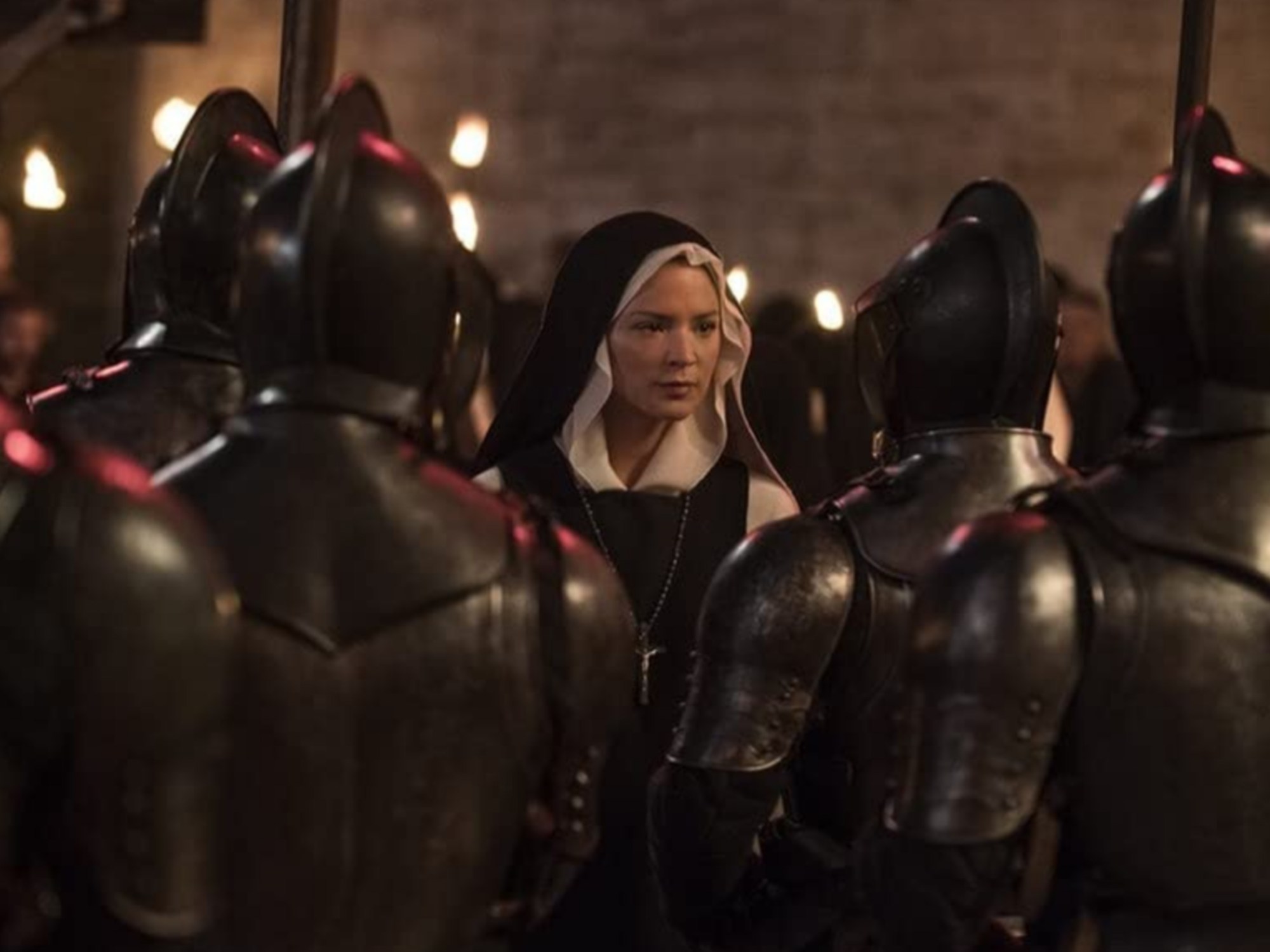
- Golden Globe Awards
Benedetta (Italy)
Faith, stigmata, religious patriarchy, forbidden desires, self-flagellation, suffering, punishment, power plays: Catholicism has it all. Nothing gives us as many story components as this religious institution, which has more scandals and a more colorful history than any other. One does not have to invent much because here art could not be more multifaceted than life. Take the true story of the Italian nun Benedetta Carlini, born in 1591.
In the first few scenes of Paul Verhoeven’s film she is a child, albeit one with certain abilities that border on the supernatural. Her family is spared many hardships due to the daughter’s close relationship with God who speaks to her, sends her to The Convent of the Mother of God in Pescia when she is nine years old, since it is the only natural course for her to devote her life to the Lord. She is essentially being sold to this convent run by an abbess played by Charlotte Rampling. They even haggle over the price. During the Renaissance such deals were not uncommon in middle-class families, since the price of admission into a convent was only a quarter of what a wedding dowry would be.
As Benedetta grows into a young woman, the arrival of the sexually abused Bartolomea, played by Daphne Patakia throws her usually dull daily life into upheaval. The young nun played by Belgian actress Virginie Efira, is madly attracted to the new girl, torn between her desires and her calling. As they begin a secret affair, Benedetta’s visions – once purely spiritual – turn sexual in nature. All the while the director, now 83, plays with Catholic imagery and metaphors. There is Bartolomea being punished by having to put her hand into a boiling pot of water. There is Benedetta being clearly told that “Your worst enemy is your body”. It could not be clearer: The female body, unlike the male one, is considered a sinful symbol of hell and all its damnations. The iconography reaches its high point with a sex scene in which Bartolomea pleasures Benedetta with a sizable wooden statue of the Virgin Mary and she, upon her first orgasm, screams out the name of Jesus. Verhoeven throws in a power hungry, lusty villain in the form of a cardinal called Nuncio (Lambert Wilson) as everyone’s world goes literally and figuratively to hell between a comet and the 17th century plague that afflicts the whole continent.
Benedetta is based on Judith C. Brown’s Immodest Acts: The Life of a Lesbian Nun in Renaissance Italy. Verhoeven, who has not done a movie since 2016s Elle, turned the nonfiction book into what is being called the most provocative film of the year. Asked about his interpretation by the New York Times, the director of such classics as Basic Instinct, Showgirls and Total Recall, said simply: “I refuse to be afraid of provocation.” The true story behind the film makes it clear that there were politics involved in this time period which coincided with the height of the church’s power. The mystery and scandal surrounding the young nun was very much used by the Vatican to attract more money from patrons as well as more faithful followers. Today, Benedetta would be considered great publicity for an institution always hellbent on expansion.
The film culminates in a trial during which the papal authorities determined that her visions were the devil’s work despite another ‘miracle’ occurring just as she is about to be burnt at the stake. In real history, Benedetta was stripped of her rank and confined to the convent until she died in 1661. When the film premiered at the Cannes Festival it certainly made headlines, but when it was shown at the New York Film Festival, religious groups protested outside the theater.

